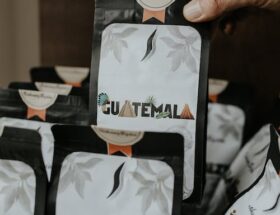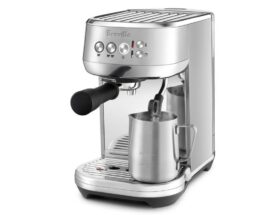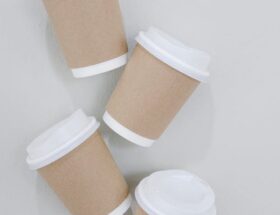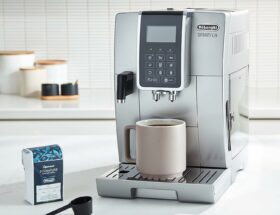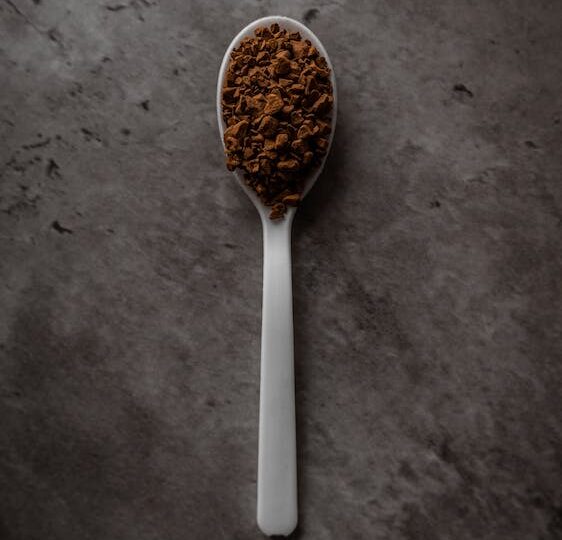
Low Caffeine Coffee: Which Has the Least?
Welcome to our blog post on low caffeine coffee! In this article, we will explore the world of low caffeine coffee options and answer the burning question: which one has the least caffeine? Coffee is the morning elixir for many of us, providing an energy boost to kick-start our day. However, not everyone can tolerate high levels of caffeine. Whether you’re trying to cut back on caffeine or simply looking for a milder option, we’ve got you covered!
Did you know that the average cup of coffee contains around 95 mg of caffeine? This stimulating compound can have various effects on our bodies, from increased alertness to potential jitters. But fear not, as we delve into the realm of low caffeine coffee, we’ll help you find the perfect brew that suits your taste preferences while keeping your caffeine intake in check.
Table of Contents
- The Pursuit of Low Caffeine Coffee
- Frequently Asked Questions about Low Caffeine Coffee
- 1. What is low caffeine coffee?
- 2. How is low caffeine coffee made?
- 3. What are the benefits of low caffeine coffee?
- 4. Does low caffeine coffee taste different?
- 5. What types of low caffeine coffee are available?
- 6. Does low caffeine coffee still provide an energy boost?
- 7. Is low caffeine coffee suitable for everyone?
- 8. Can low caffeine coffee be enjoyed throughout the day?
- 9. Can low caffeine coffee be used in any brewing method?
- 10. Are there any potential side effects of low caffeine coffee?
- Conclusion
The Pursuit of Low Caffeine Coffee
For many people, coffee is an indispensable part of their daily routine. However, not everyone can handle the high caffeine content found in most traditional coffees. Whether you’re sensitive to caffeine, need to reduce your intake, or simply prefer a milder option, low caffeine coffee is the perfect solution. In this article, we explore the world of low caffeine coffee and narrow down the options to find the coffee with the least amount of caffeine.
Understanding Caffeine Levels
Before diving into the various low caffeine coffee options, it’s important to understand how caffeine levels are measured. Typically, caffeine content is quantified in milligrams (mg) per serving. To give you a reference point, a regular cup of coffee contains around 95 mg of caffeine, while certain specialty coffees can reach up to 200 mg per serving.
When it comes to low caffeine coffee, the focus is on brands or blends that have significantly lower caffeine content compared to the average cup. This allows coffee enthusiasts to enjoy their favorite beverage without the jitters or sleep disruptions often associated with higher caffeine levels.
1. Decaffeinated Coffee
Decaffeinated coffee, commonly known as “decaf,” is perhaps the most well-known option for those seeking low caffeine coffee. Through various processing methods, the caffeine in coffee beans is removed to a significant extent. It’s important to note, though, that decaf coffee still contains a small amount of caffeine, typically ranging from 2 to 15 mg per serving. Nevertheless, this makes decaf a favorable choice for individuals aiming to reduce their caffeine intake.
2. Swiss Water Process Coffee
If you’re looking for a more natural way to remove caffeine from coffee beans, Swiss Water Process (SWP) coffee is worth exploring. This method uses only water, temperature, and time to extract caffeine from the beans, without the use of chemicals. SWP coffee offers a distinctive flavor profile and generally contains a bit more caffeine than traditional decaf, usually ranging from 5 to 30 mg per serving.
3. Tea-Infused Coffee
In recent years, a unique trend has emerged in the world of low caffeine coffee – tea-infused coffee. By blending coffee beans with tea leaves, this innovative concoction delivers a smoother and less intense flavor while significantly reducing caffeine content. Tea-infused coffees typically contain around 30 to 60 mg of caffeine per serving, making them an excellent option for those seeking a milder coffee experience.
4. Low Caffeine Coffee Blends
Some coffee brands have introduced specific blends that are specifically designed to have lower caffeine levels. These blends combine various coffee beans, including those naturally low in caffeine or decaffeinated beans, to create a unique flavor profile with reduced caffeine content. Depending on the blend, their caffeine levels can vary from 10 to 50 mg per serving.
5. Single-Origin Low Caffeine Coffee
If you’re a coffee purist who enjoys exploring the distinct flavors of single-origin beans, you’ll be pleased to know that certain coffee varieties naturally have lower caffeine levels. For instance, Brazilian Santos, Colombian Supremo, and Mexican Chiapas beans tend to have lower caffeine content. By opting for single-origin coffees with these beans, you can enjoy a rich and flavorful cup of coffee with less caffeine, typically ranging from 25 to 70 mg per serving.
Frequently Asked Questions about Low Caffeine Coffee
1. What is low caffeine coffee?
Low caffeine coffee refers to coffee that contains a reduced amount of caffeine compared to regular coffee. It is often preferred by individuals who are sensitive to caffeine or who wish to limit their caffeine intake.
2. How is low caffeine coffee made?
Low caffeine coffee is typically made by using coffee beans that naturally contain less caffeine or by employing special decaffeination processes. These processes remove a significant portion of the caffeine while maintaining the flavor and aroma of the coffee.
3. What are the benefits of low caffeine coffee?
Choosing low caffeine coffee can have several benefits. First, it can help individuals reduce their caffeine intake, which may result in better sleep quality and reduced jitters. Second, it allows coffee enthusiasts to enjoy the taste and ritual of coffee without the stimulating effects of excessive caffeine.
4. Does low caffeine coffee taste different?
Low caffeine coffee retains most of the taste and flavor characteristics of regular coffee. While there may be a slight difference in taste, it is often subtle and well-tolerated by coffee lovers. Many people find that the benefits of low caffeine coffee far outweigh any minimal taste variation.
5. What types of low caffeine coffee are available?
There are several options for low caffeine coffee. Some popular choices include decaffeinated coffee, half-caffeinated coffee, and coffee substitutes made from ingredients other than coffee beans. Additionally, some specialty coffee brands offer specific low caffeine varieties.
6. Does low caffeine coffee still provide an energy boost?
While low caffeine coffee contains a reduced amount of caffeine, it can still provide a mild energy boost. The caffeine content in low caffeine coffee is typically enough to stimulate the nervous system without causing the same level of alertness as regular coffee. However, individual reactions may vary.
7. Is low caffeine coffee suitable for everyone?
Low caffeine coffee is generally suitable for most individuals, including those who are sensitive to caffeine or who wish to limit their caffeine intake. However, it is always recommended to consult with a healthcare professional, especially if you have any specific health concerns or conditions.
8. Can low caffeine coffee be enjoyed throughout the day?
Absolutely! Low caffeine coffee can be enjoyed at any time of the day. Since it contains less caffeine, it is often chosen as an alternative to regular coffee in the afternoon or evening to avoid sleep disturbances. However, moderation is always key, and individual tolerance levels may vary.
9. Can low caffeine coffee be used in any brewing method?
Yes, low caffeine coffee can be used in the same brewing methods as regular coffee. Whether you prefer using a drip coffee maker, French press, or espresso machine, low caffeine coffee will work just as well. Adjustments to the brewing time or ratio may be necessary depending on the specific coffee blend.
10. Are there any potential side effects of low caffeine coffee?
In general, low caffeine coffee is well-tolerated by most individuals. However, it’s important to note that some people may still experience mild side effects such as dehydration, digestive issues, or increased heart rate, especially if consumed in large quantities. As with any dietary change, it’s always advisable to listen to your body and make adjustments accordingly.
Conclusion
As you can see, the world of low caffeine coffee offers a wide range of options for coffee lovers to choose from. Whether it’s decaf, Swiss Water Process coffee, tea-infused blends, or specific low caffeine coffee blends, there is an option to suit every taste preference.
While the exact caffeine content can vary slightly between brands and brewing methods, these options provide a fantastic alternative for individuals looking to reduce their caffeine intake. So go ahead, indulge in a cup of low caffeine coffee and savor the rich flavors without the jitters!


